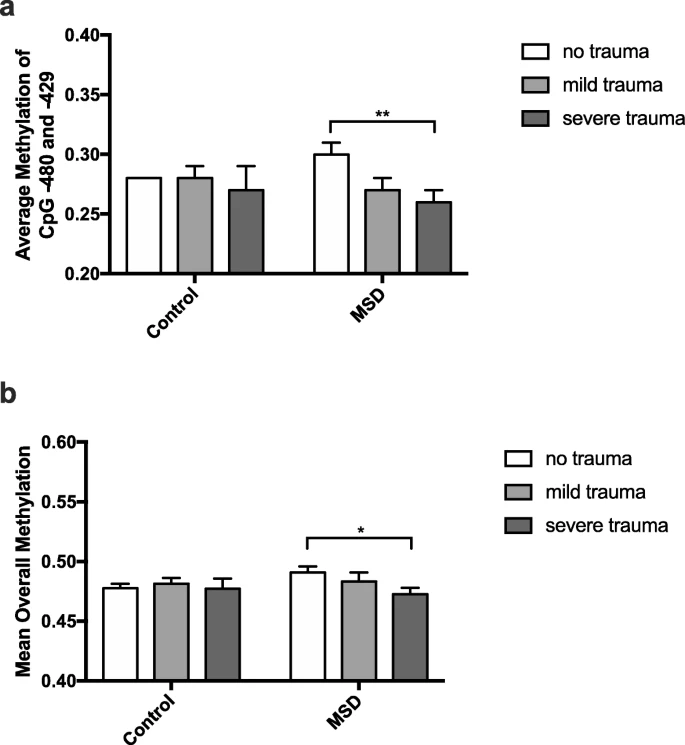Andy
Senior Member (Voting rights)
Full title: Childhood traumatization is associated with differences in TRPA1 promoter methylation in female patients with multisomatoform disorder with pain as the leading bodily symptom
Open access at https://clinicalepigeneticsjournal.biomedcentral.com/articles/10.1186/s13148-019-0731-0Background
The construct of multisomatoform disorder (MSD) is a common point of reference for patients in different somatic and psychosomatic specialties and therefore useful in studying large well-characterized cohorts of a prototype of a somatoform disorder and in parallel as a functional somatic syndrome (FSS). This disorder is characterized by distressing and functionally disabling somatic symptoms with chronic pain as the most frequent and clinically relevant complaint. Pain is perceived by nociceptive nerve fibers and transferred through the generation of action potentials by different receptor molecules known to determine pain sensitivity in pathophysiological processes. Previous studies have shown that for the transient receptor potential ankyrin 1 (TRPA1), receptor methylation of a particular CpG dinucleotide in the promoter region is inversely associated with both heat pain and pressure pain thresholds. In this study, we hypothesized that TRPA1 promoter methylation regulates pain sensitivity of patients with multisomatoform disorder (MSD). A cohort of 151 patients with MSD and 149 matched healthy volunteers were evaluated using quantitative sensory testing, clinical and psychometric assessment, and methylation analysis using DNA isolated from whole blood.
Results
We found CpG -628 to be correlated with mechanical pain threshold and CpG -411 to be correlated with mechanical pain threshold in female volunteers, i.e., higher methylation levels lead to higher pain thresholds. A novel finding is that methylation levels were significantly different between patients with no and severe levels of childhood trauma. CpG methylation also correlated with psychometric assessment of pain and pain levels rated on a visual analog scale.
Conclusion
Our findings support the hypothesis that epigenetic regulation of TRPA1 plays a role in mechanical pain sensitivities in healthy volunteers. They further provide evidence for the possible influence of childhood traumatic experiences on the epigenetic regulation of TRPA1 in patients with MSD.

